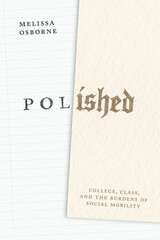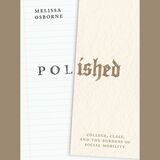179 scholarly books by Tupelo Press and 11
have author last names that start with W
179 scholarly books by Tupelo Press and 11
179 scholarly books by Tupelo Press
11 have author last names that start with W have author last names that start with W
11 have author last names that start with W have author last names that start with W

Slick Like Dark
Meg Wade
Tupelo Press, 2020
Delving into dark desire and mystery, Slick Like Dark pierces through the noise of aimless reality. These collected poems are haunting and passionate, honest and vivid, asking who bears the blame as they scatter us about the South. Poet Meg Wade carefully crafts an examination of the Southern body and the experience of a woman living in it. Depicting relationships, personal struggles and religion, lines such as “A wasp/nest, gristled angels/it’s strange, how scared/I am-quick write/down” show the complexities of creativity. Wade brings us into the intensity of this strangely relatable life while reflecting on the darker sides of what could be done or what could have been. In her characteristic, poignant style, Wade writes “This could have been a place where I would love him like a woman/who wants to have babies would”, leaving open the harsh possibilities of love unredeemed. As thrilling as they are contemplative, these poems bring us to realizations we would have shied from before.
[more]

Butch Geography
Stacey Waite
Tupelo Press, 2013
In her Los Angeles Review of Books essay “Who Is Who: Pronouns, Gender, and Merging Selves,” Dana Levin describes Stacey Waite’s fusion of gender identities: “Pseudonyms, heteronyms, personae, all the ventriloquizing literary arts; point of view and tonal shifts: these are tools for speakers and speaking. But the sentence too has a voice: ‘i will not be the kind of boy who can not bear the memory of her body’ … This is [Waite’s] genius … to take innocuous syntactical phrasing and change the players mid-sentence — to get around English’s pronominal either/or by creating a syntactical both/and…”
[more]

The lake has no saint
Stacey Waite
Tupelo Press, 2010
Stacey Waite’s the lake has no saint is a study in grief — a work of poetic archaeology that traces the artifacts of the past into the relationships of the present.
Embedded in a powerfully modulated sequence addressing a “you” who shifts in location and identity, many of these poems feel like forms of request, imploring. The speaker’s androgynous self-awareness — and wary attention to the gendered assumptions elicited by bodies — disclose in each poem a recognizable but disorienting (and pressurized) situation.
the lake has no saint will unsettle a reader’s sense of the certainty and stability of gender, as grammar and phrasing are also disrupted and blurred, often requiring us to read closely to hear where one sentence ends as another begins. Yet despite its formal and thematic iconoclasm, this is a book that clearly elucidates a story both heart-rending and ultimately — in its vatic honesty — triumphant.
Embedded in a powerfully modulated sequence addressing a “you” who shifts in location and identity, many of these poems feel like forms of request, imploring. The speaker’s androgynous self-awareness — and wary attention to the gendered assumptions elicited by bodies — disclose in each poem a recognizable but disorienting (and pressurized) situation.
the lake has no saint will unsettle a reader’s sense of the certainty and stability of gender, as grammar and phrasing are also disrupted and blurred, often requiring us to read closely to hear where one sentence ends as another begins. Yet despite its formal and thematic iconoclasm, this is a book that clearly elucidates a story both heart-rending and ultimately — in its vatic honesty — triumphant.
[more]

The Earliest Witnesses
G.C. Waldrep
Tupelo Press, 2020
In the poems of The Earliest Witnesses, witnesses need a place to begin-they spiral off from a walk, a church, an orchard, to go into deeper meditation about faith, earth, restraint, desire, and violence. Waldrep’s seventh collection begins where his prior collection, feast gently, left off: “This / is how the witness ends: touch, withdraw; touch again,” according to the opening poem. The status of witnesses is never constant and never settled in this book: sometimes, witnesses “foster,” “touch,” and “stain” the places they inhabit; other times, they befriend, or document, or think. Sometimes, witnesses forget themselves-in questions of blame and responsibility-and sometimes they feel forgotten and unknown. If these are poems of witness, then they are also testators to the craft of seeing: “Can you see this,” the ophthalmologist in “A Mystic’s Guide to Arches” asks over and over again. Here, sight facilitates and impedes desire; it colludes with language itself. “She said, When you say pear, I see p-e-a-r for a second before I see, in my mind’s eye, a pear,” Waldrep carefully records in “[West Stow Orchard Poem (II)].” The desire-poems in The Earliest Witnesses want the thing itself, its image of the mind, and the language that transmutes both thing and image into song.
[more]

feast gently
G.C. Waldrep
Tupelo Press, 2018
In his most autobiographically transparent (and most comical) collection to date, Waldrep explores the intersections between body and spirit, faith and action. These are lyrics of incarnation, of method and meat-hood, of illness and the vicissitudes of love, earthly as well as heavenly, occupying the space between desire and gratification, between pain and praise.
[more]

Republic of Mercy
Poems
Sharon Wang
Tupelo Press, 2018
In Sharon Wang’s thrilling and corporeal geometry, touch dominates, if often in its ‘aftermarks’: singes, whiffs, folds of fabric, echoing gestures between bodies. With generous language and quicksilver intelligence, Wang expresses ‘a hunger so large it stops the mouth.’ Her poems describe what is ‘hard and brilliant,’ the spaces between objects, and what’s left in the wake of losses. “Despite its attunement both to elegy and to witness, the mode is praise: ‘He loved the world. He loved it suddenly / and without reason.’ . . . As the poet works to understand, ‘If in fact it wasn’t possible to build / the world anew,’ she does build––extravagantly, judiciously, lovingly. The result is a book of radiant integrity.” — from the judges’ citation for the Kundiman Poetry Prize.
[more]

Dogged Hearts
Ellen Doré Watson
Tupelo Press, 2010
In her fifth collection of poems, Ellen Doré Watson lends her supple voice to a multiplicity of characters, each with his or her own particular dilemma, distraction, or disarray: Junie biking home to find a new mom, Edur wondering whether he’s anyone’s father, a pregnant teen starving herself to lose the fetus, or the widower Lew buoyed by a vision of his wife after her death. With a novelist’s finesse and a poet’s details, Watson creates lives that resonate with poignancy and urgency.
In Dogged Hearts Ellen Doré Watson demonstrates a capacious talent for invention and empathy and, with her incomparable linguistic brio, gives us an unforgettable look at how loss and disconnection can usher in chance-to-change reverie and unexpected veerings towards life.
In Dogged Hearts Ellen Doré Watson demonstrates a capacious talent for invention and empathy and, with her incomparable linguistic brio, gives us an unforgettable look at how loss and disconnection can usher in chance-to-change reverie and unexpected veerings towards life.
[more]

We Are Changed to Deer at the Broken Place
Kelly Weber
Tupelo Press, 2022
One could certainly say that Kelly Weber’s debut collection, We Are Changed to Deer at the Broken Place, depicts a non-binary experience that does not receive nearly enough representation in the literary landscape. While such an assertion would be factual, this kind of reading would underestimate Weber’s poetic gifts and the full range of the philosophical implications for her work. Weber writes, “What pulls a woman like me / out here alone, they want to know?” As she teases out possible answers to this question, Weber reveals—with remarkable lyricism and grace—the danger, richness, and multiplicity housed within solitary experience and within the individual subject. Adriana Cavererro, the famed scholar of vocal expression, once noted that thought itself is a collective endeavor, made possible by a shared cultural imagination. Weber reveals self as world, self as community in poems that situate an inherited tradition in conversation with postmodern innovation and undertheorized, urgently important concepts of identity. This is an unforgettable first book.
[more]

Franciscan Notes
Alan Williamson
Tupelo Press, 2019
The book begins with deaths: chiefly the poet’s mother’s, but also those of cherished mentors and friends. Poems explore living beyond those deaths and approaching old age, and then do some traveling. Williamson takes a pilgrimage to Japan and India, inspired by his practice of Zen meditation, and placed under the aegis of a saying from the great Rinzai Zen monastery at Daitoku-ji: “If you cannot endure this moment, what can you endure?” A theme then becomes enduring the public moment, with all its griefs and opportunities for growth. The reader is then transported with the poet to Italy. In 2000, Williamson began visiting Tuscany regularly, and eventually became a property owner there. The poems set in Italy dwell on an encounter with old culture, and its potential to encourage both resignation and mysticism, with moods that persist from the tutelary geniuses of two great Italian poets: the nihilistic Leopardi and the tentatively mystical Montale. Gathering around those experiences multiple lore from music, philosophy and science, it becomes an extended meditation on mental suffering, glimpses of the ecstatic, and the double nature of our life, “skull / and beatific face,” with “the immortal recombinants of fire and water.”
[more]

Legends of the Slow Explosion
Eleven Modern Lives
Baron Wormser
Tupelo Press, 2018
Multi-genre literary master Baron Wormser’s new book is about people from the mid-twentieth century whose lives created ripple effects beyond their individuality. Including electrifying portraits of Rosa Parks, Hannah Arendt, Miles Davis, Audrey Hepburn, Willem de Kooning, among others, these are not conventional “biographical” essays. Wormser has created a molten, multi-dimensional prose that brings a reader into the visceral presence of these human catalysts.
[more]

Nemerov's Door
Essays
Robert Wrigley
Tupelo Press, 2021
Nemerov’s Door is a testament to what matters most in Robert Wrigley’s life: love, nature, wild country, music, and poetry. In his youth, Robert Wrigley had little interest in poetry; you even could call it an active disinterest. Then, at the age of twenty-one, after being drafted into the army during the Vietnam War, after receiving an honorable discharge on the grounds of conscientious objection, and feeling otherwise adrift, he took a class in poetry writing, and that class altered the trajectory of his life. Nemerov’s Door is the story of a distinguished and widely celebrated poet’s development, via episodes from his life, and via his examinations of some of the poets whose work has helped to shape his own. Essays on James Dickey, Richard Hugo, Etheridge Knight, Howard Nemerov, Sylvia Plath, and Edwin Arlington Robinson are interwoven with essays about the sources of poetry: arrowheads; wild rivers; and the lyrics of a song from My Fair Lady, among other things. In the essay about Richard Hugo, Wrigley engages with a single poem by his great mentor, whose influence on Wrigley and many other poets of his generation has been enormous. “The Music of Sense” extrapolates from Frost’s notion of the “sound of sense,” and fuses it with Hugo’s notion that the poet, forced to choose between music and meaning, must always choose music. As though to offer his own proof of that notion, one of Wrigley’s other essays here is a poem. In all, the book, described by Joe Wilkins of the High Desert Journal, “is as generous and wise a book as I’ve read in a long, long time.”
[more]
READERS
Browse our collection.
PUBLISHERS
See BiblioVault's publisher services.
STUDENT SERVICES
Files for college accessibility offices.
UChicago Accessibility Resources
home | accessibility | search | about | contact us
BiblioVault ® 2001 - 2024
The University of Chicago Press









